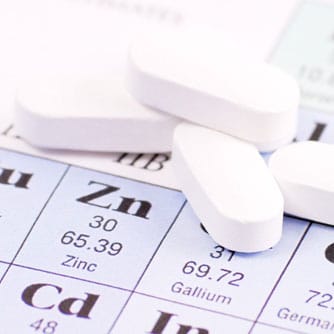Previously, a number of studies have established that zinc is essential to protect against oxidative stress and help repair DNA damage. In zinc deficiency, the risk of which has been shown to increase with age, the body’s ability to repair genetic damage may be decreasing even as the amount of damage rises. Emily Ho, from Oregon State University (Oregon, USA), and colleagues studied a lab animal model for the cellular zinc transport mechanisms. Finding that zinc transporters were significantly dysregulated in old mice, the team observed that aged animals showed signs of zinc deficiency and displayed an enhanced inflammatory response even though their diet supposedly contained adequate amounts of zinc. However, when researchers gave about 10 times the dietary requirement for zinc, the biomarkers of inflammation were restored to those of young animals. Reporting that: “restoring zinc status via dietary supplementation reduced aged-associated inflammation,” the study authors submit that: “Our data suggested that age-related epigenetic dysregulation in zinc transporter expression may influence cellular zinc levels and contribute to increased susceptibility to inflammation with age.”
The Zinc Link
Wong CP, Magnusson KR, Ho E. “Increased inflammatory response in aged mice is associated with age-related zinc deficiency and zinc transporter dysregulation.” J Nutr Biochem. 2012 Sep 13.
RELATED ARTICLES




